A dream is often the ethereal nature of hope come to life in mental images, but for many, when the dream doesn’t come true, despair is the result.

My dad’s dream of traveling to the 1948 London Olympics and winning a swimming gold medal for his country didn’t come true.
While waiting for a wave on his wooden surfboard about one hundred yards out from shore at South Beach in Durban, South Africa, a shark came up underneath him and hit him with terrifying force, biting down into his right bicep.
He later wrote, “it lifted me clear into the air” and “it was an ideal day for surfing and for sharks.”
My father was rushed to the hospital and given blood transfusions and emergency surgery and ultimately survived. He traveled to San Francisco for additional arm surgery and recuperated on Waikiki Beach in Hawaii, where he befriended the Kahanamoku clan, legendary beachboys who had been his swimming heroes.
A founding principle of the beachboy ethos is “Never turn your back on the ocean.”
Be aware of the dangers associated with the sea, but never turn your back on its goodness.
I like to think that this simple concept gave my father hope in what could have been a time of deep despair. Hope is a choice, a reframing of the present situation and a positive perspective of the future. Hope is action, the antidote to the inaction of despair.
In one bite, the shark had erased my father’s dream. Over the years, I have thought what that might mean to an athlete in his physical prime—poised to be a champion and then no hope of success. What happens when your dream is no longer attainable? Is hope vanquished, and does despair reign?
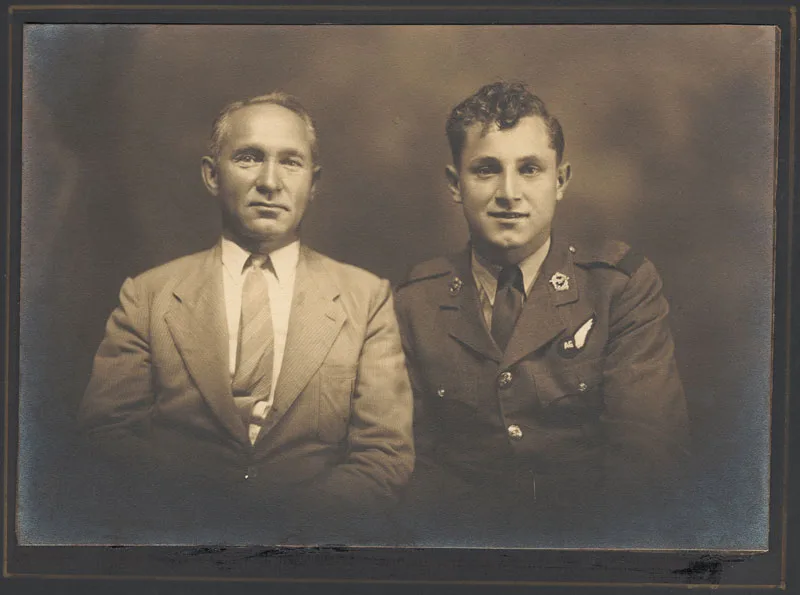
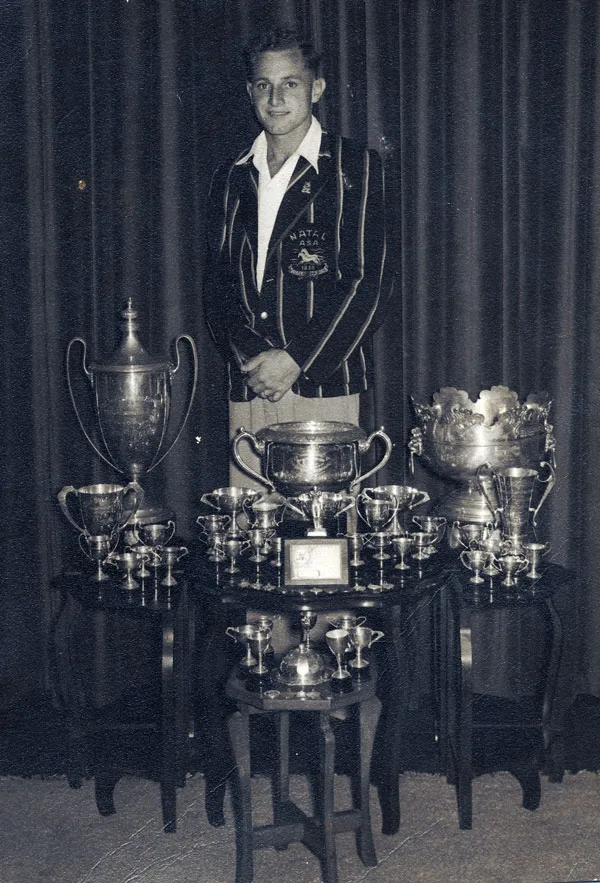
Is life a spiral downward into despair, a journey forward with a backpack laden with bitterness and hopelessness?
When I think of my father and how he lived his life, I know he constructed a new dream—a dream not of being the best swimmer but rather of helping other people be their best at what they loved.
He helped an entire generation of young surfers realize their potential through emotional and financial support, and I was part of that tribe. My dad reframed his dream into giving hope to others—making their dreams come true.
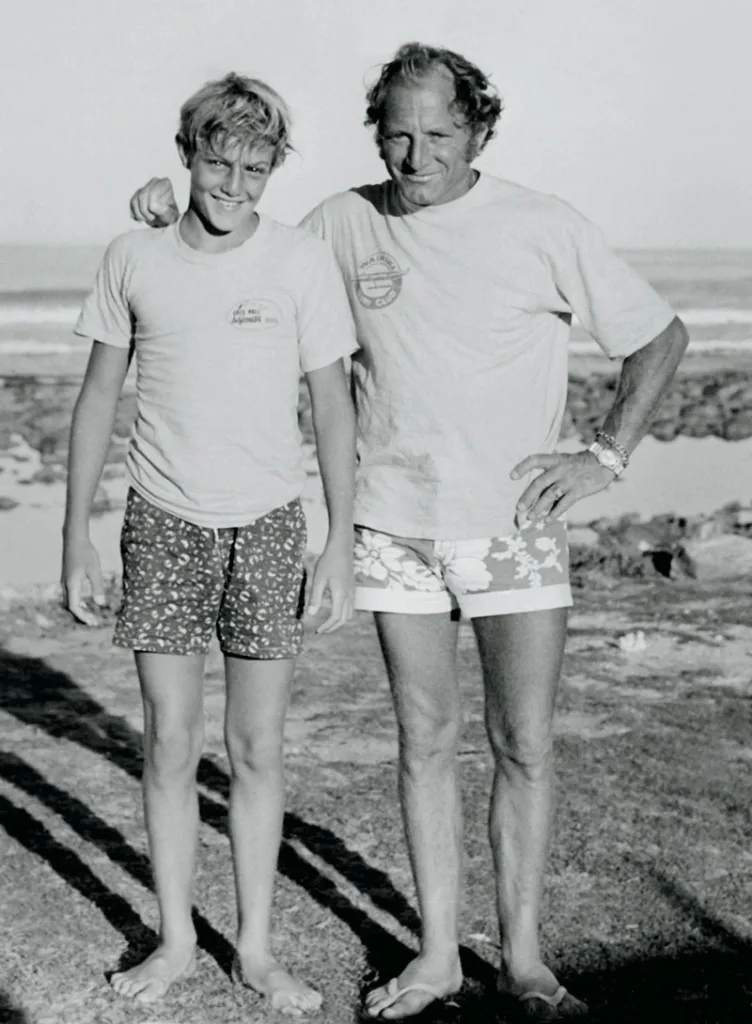
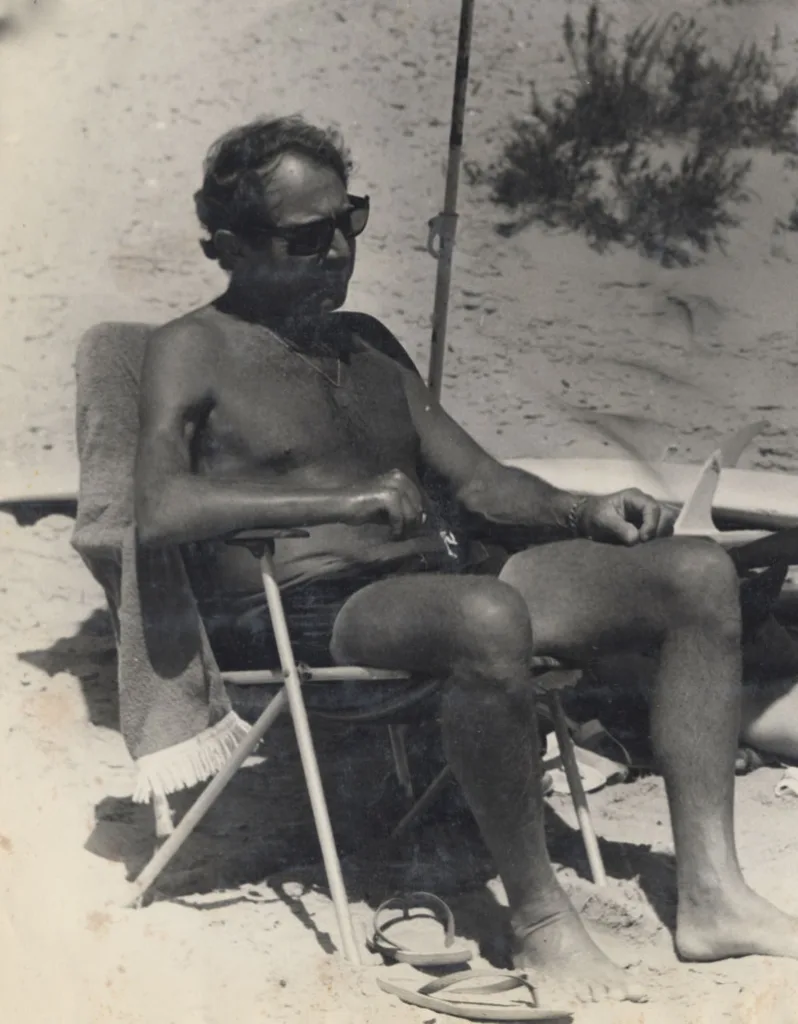
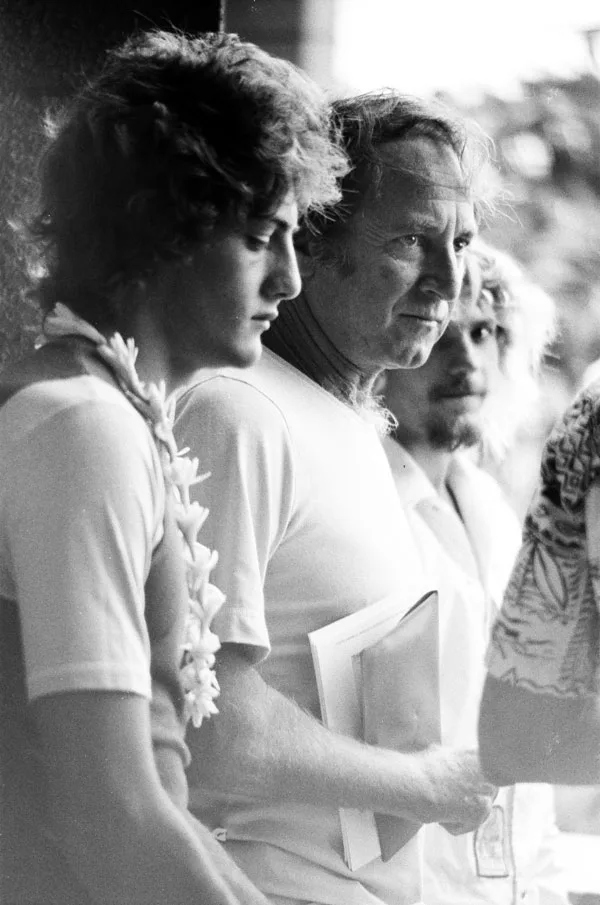
Three decades after recuperating on the beach at Waikiki, my father traveled back to Hawaii to watch me compete in the Pipeline Masters, the world’s most prestigious surfing competition on the world’s most dangerous wave.
I was relatively unknown, the youngest competitor, up against the legendary Hawaiian surfers, and competing with my back to the wave, which back then was a fundamental disadvantage. I stood on the beach with my dad after the final ended, nervously awaiting the judges’ decision.
The results came over the PA system: “In first place: Shaun Tomson.”
It was a massive upset of the established surfing hierarchy and the biggest win of my life.
I hugged my dad. Perhaps his original dream didn’t come true (that ended on a beach in Durban), but he helped his son achieve his, on another beach, halfway around the world.
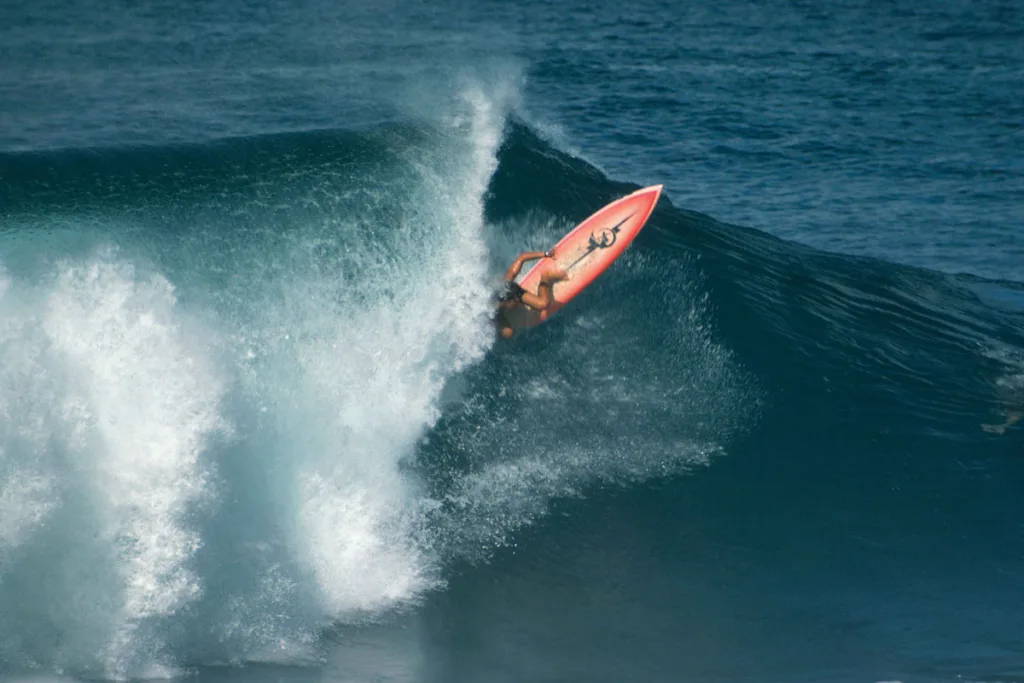
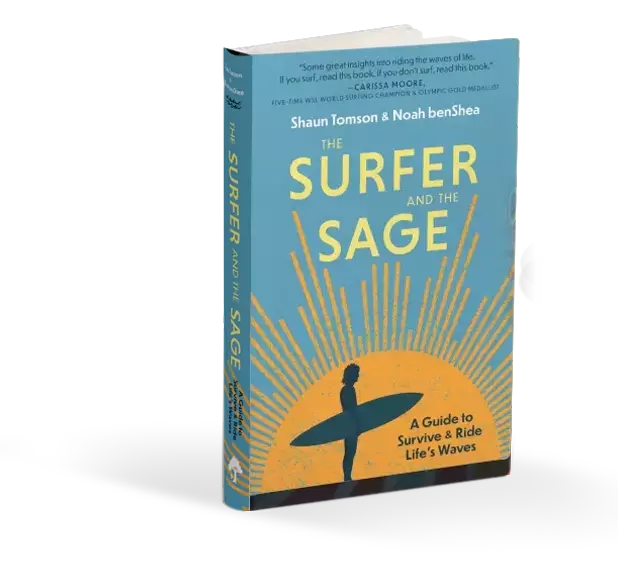
The Surfer and The Sage
Legendary world champion surfer Shaun Tomson and international best-selling poet-philosopher Noah benShea join forces to offer you insight on a path of purpose, hope, and faith.
Buy on Amazon